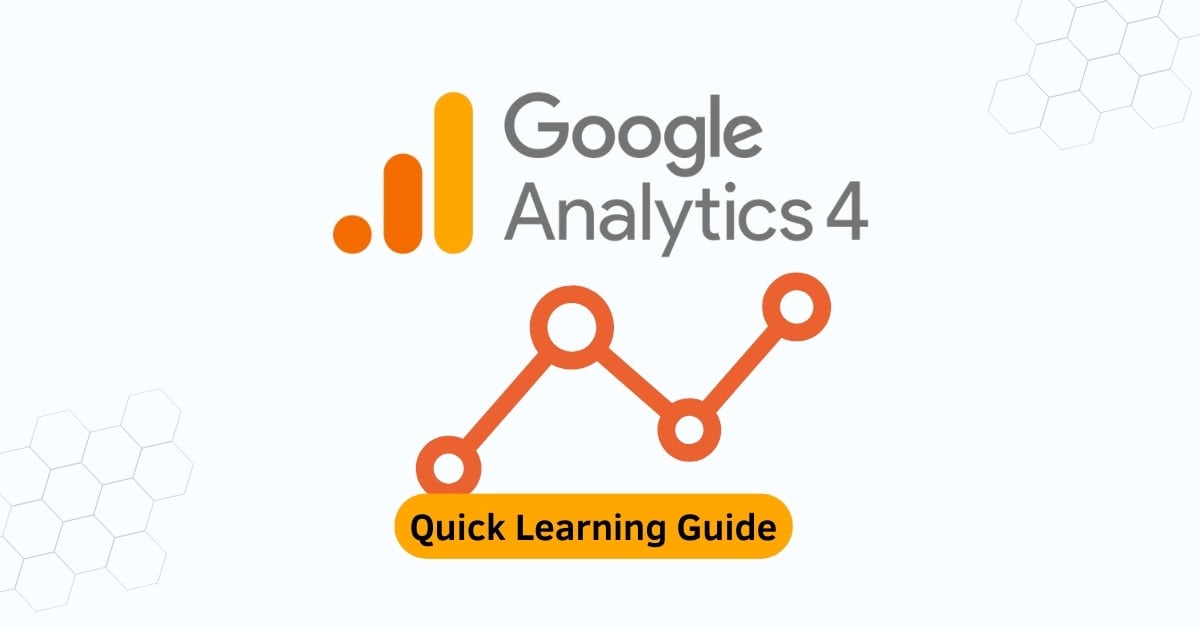This article has been updated as of February 14, 2024, ensuring its relevance and accuracy in reflecting the latest information available up to this date.
Google Analytics 4 or GA4 is the fourth edition or version of What is Google Analytics that combines all the data from websites and apps for unified reporting and analytics.
In the past, if you need to gather data from the website you need to have universal analytics and GA property to track the data
If you want to track the data from your application, you need Google Analytics for Firebase or Google Analytics APP view.
So to combine all the data into one GA property, google analytic 4 was created. Any universal account can be upgraded to GA4
The new GA4 can track the data from the website only or it can track data from the application only and it can track data from both at the same time. Even if you don’t have an application, google will still recommend using the GA4 property as GA4 runs parallel with your GA3 property.
Structure of analytics account
With the launch of the new GA4, the Google Analytics account has also been changed. An organization can use multiple Google products such as Google Analytics, Google Tag Manager, optimize, and Data Studio now you can access all of those under the Google marketing platform
You can have multiple Google accounts in one organization and each account can have one or more properties that can represent both website and mobile applications. Google Analytics properties are categorized into three sections they are “web property”, “apps property”, and “Apps and Web property”. As the web property only collects the data from your website, the app property can collect data from mobile applications and apps and the web property can collect data from both apps and websites.

Features of GA4
- Event-Based Data Collection: GA4 adopts an event-driven approach to data collection, allowing businesses to capture a wide range of user interactions across various touchpoints. From page views to app installs and in-app purchases, GA4 provides a comprehensive view of user engagement.
- Privacy Controls: With growing concerns over data privacy, GA4 prioritizes user privacy with enhanced controls and transparency. Businesses can customize data retention settings, implement user consent policies, and adhere to stringent data protection regulations.
- Predictive Capabilities: Leveraging machine learning algorithms, GA4 offers predictive analytics capabilities, enabling businesses to forecast user behaviour, identify trends, and make data-driven decisions with confidence.
- Direct Integrations to Media Platforms: GA4 seamlessly integrates with popular media platforms, allowing businesses to track and analyze campaign performance across channels such as Google Ads, YouTube, and Display & Video 360.
Benefits of GA4
- Improved Customer Journey Tracking: GA4 provides a holistic view of the customer journey, enabling businesses to track user interactions across devices and platforms. With enhanced cross-platform tracking capabilities, businesses can gain deeper insights into user behavior and optimize conversion paths accordingly.
- Advanced Analytics: From funnel analysis to cohort reporting, GA4 offers advanced analytics tools that empower businesses to uncover actionable insights and drive growth. With customizable dashboards and real-time reporting, businesses can track key metrics and measure the impact of their marketing initiatives.
- Integration with BigQuery: For businesses with advanced data analysis needs, GA4 seamlessly integrates with BigQuery, Google’s enterprise data warehouse. This integration allows businesses to export raw data for further analysis, unlocking the full potential of their data assets.
- Better User Privacy: With stricter data privacy regulations such as GDPR and CCPA, maintaining user privacy is paramount. GA4’s enhanced privacy controls and consent management features ensure compliance with regulatory requirements while safeguarding user data.
Limitations of GA4
- Reliance on Sampled Data: One of the limitations of GA4 is its reliance on sampled data for larger datasets. While sampled data can provide insights at scale, it may lack the granularity needed for detailed analysis in certain scenarios.
- Whole-View of Users: Unlike Universal Analytics, which focuses on session-based tracking, GA4 offers a whole-view approach to user tracking. While this provides a more comprehensive understanding of user behaviour, it may require businesses to adjust their reporting and analysis strategies accordingly.
- Removal of Attribution Models: GA4 removes traditional attribution models such as first-click and last-click attribution, opting for a more flexible approach to attribution modelling. While this offers greater flexibility, businesses may need to adapt their attribution strategies to align with GA4’s approach.
- Data Collection Limits: GA4 limits data collection, particularly for free-tier accounts. Businesses with high traffic volumes may encounter limitations on data sampling and processing, necessitating a more strategic approach to data collection and analysis.
GA4 vs Universal Analytics
- Data Models: GA4 adopts an event-based data model, whereas Universal Analytics relies on session-based tracking. This shift enables GA4 to provide a more comprehensive view of user interactions and engagement.
- User Metrics: GA4 introduces new user metrics such as engaged sessions and user lifecycle events, offering a more nuanced understanding of user behaviour compared to Universal Analytics’ focus on sessions and pageviews.
- Pageviews: While both GA4 and Universal Analytics track pageviews, GA4 offers enhanced capabilities for tracking dynamic content and single-page applications, providing more accurate and detailed insights into user interactions.
- Sessions: GA4 redefines the concept of sessions, focusing on user engagement and interaction rather than time-based sessions. This allows businesses to track user behaviour more accurately across devices and platforms.
Advantages of using GA4 over UA
· GA4 enables cross-platform and cross-device tracking
· Accurate tracking if a unique user
· Data studio
· Free Product linking
· No limit on the volume of data


